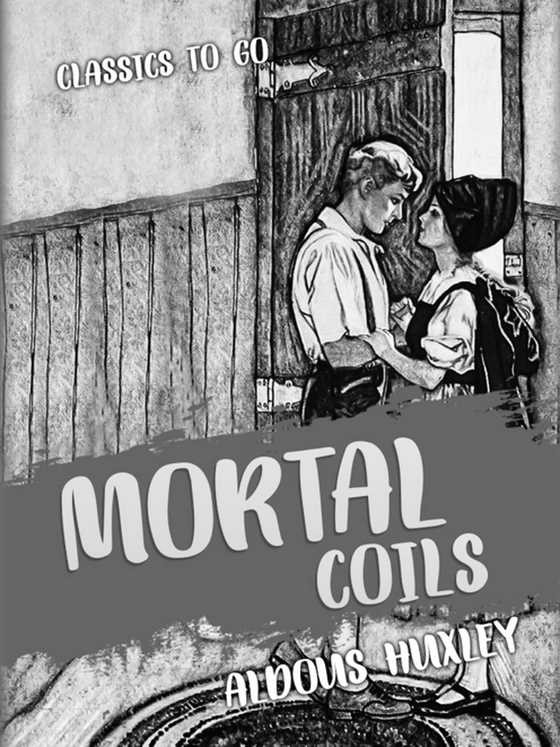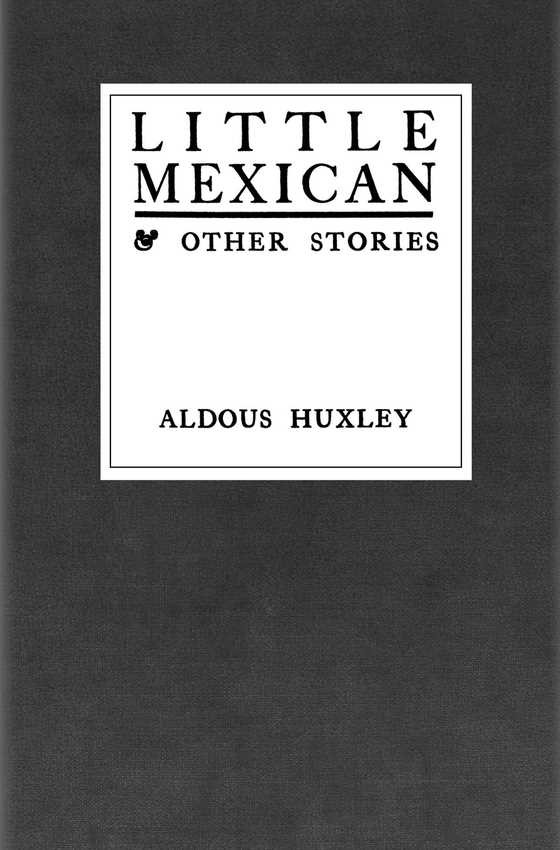

Uncle Spencer
Little Mexican
Hubert and Minnie
Fard
The Portrait
Young Archimedes




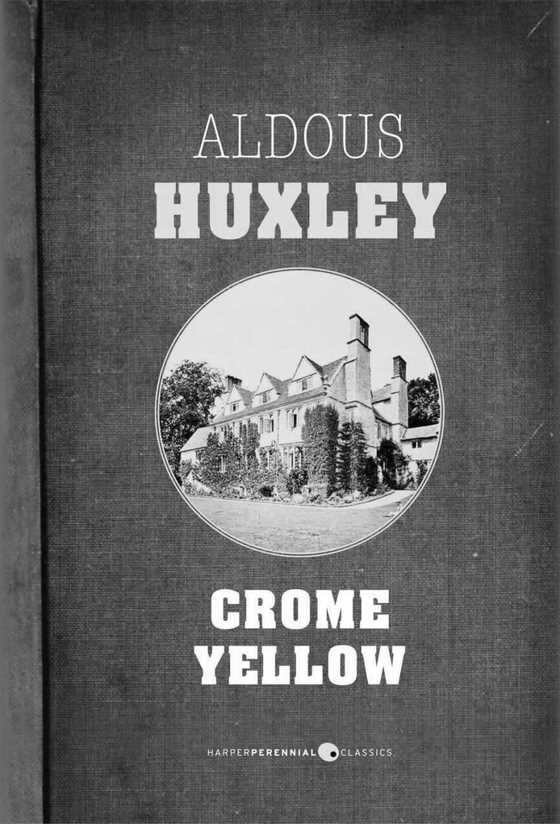 I was in my 20’s when i last read this, somewhere between 25 and 30 years ago, and i still think it’s a very good book.
I was in my 20’s when i last read this, somewhere between 25 and 30 years ago, and i still think it’s a very good book.
There is, however, a problem with this book: Aldous was very clearly a product of Victorian England and his use of words really reflect this, especially in his early writing, and there are the very occasional racial words/comments used — which i counted twice.
It’s a very awkward place to find oneself, caught between two cultures. By my standards the use of such language is completely unacceptable, yet, having read a few Victorian books and also post Victorian books, like this, written by those who were educated by Victorians, it is clear that the use of such language was, very much, the standard of the day.
Do we now throw the babies out with the bath water? Admittedly, by contemporary standards, the bathwater we are dealing with is now considered untreated sewage, but in it’s day it was considered fit for drinking. I certainly don’t feel that Aldous was, in anyway, being racist and derogatory, but simply using the words and cliches of his day.
As to the rest of the book it is very clearly a satire and critique of England in the early 1920’s and it’s very clear that Aldous was not supporting of many views expressed in this book, but laying bare the thinking and ideas of his day. If you are interested you can read much more about this on it’s Wiki page.
The interesting thing for me is that just over 5 years ago i spent 3 years living at one of England’s great houses and its huge estate, including parklands, shrubberies, woods, Italian gardens, ponds, lakes, etc., and it certainly made reading about Crome a whole different experience. Sadly, to be honest, the upper classes, and their sycophants, haven’t really changed much from the attitudes and behaviour satirised and parodied within Crome Yellow.
This book is also, very much, the forerunner to Brave New World, and i would suggest a must read for fans of that book.

 Aldous’ first collection of short fiction, consisting of six short stories and a play.
Aldous’ first collection of short fiction, consisting of six short stories and a play.
All in all it’s quite a good read and one can see the young Aldous developing his writing. Admittedly, he is incredibly pompous at times, but one does get the feeling in “Bookshop” that he realises this and that he understands that he needs to tone it down a lot if he wants to get his ideas and thoughts across to the masses.
Definitely a must read for all Aldous fans.

A rather interesting look at Dissociative Identity Disorder before and into WWI, where one personality is a conscientious objector while the other is firmly on the side of destroying the Hun with extreme predjudice. Add to this that Richard’s other personality is female and when she takes over he has complete blackouts and things get a little out of control for him.
Yes folks, just because someone with DID is male does not mean that their other personalities are going to be male also. It doesn’t work like that. One’s other personalties are whoever they are and sometimes they will express with different genders to the host.
Superbly written in Aldous’ inimitable style.

Set in the years of WWI, Aldous introduces us to two young men, both at war, with completely contrasting views on life. I think this is Aldous’ way of reminding himself — and all of us — to not get lost in dogmatic ideologies and, instead, to grasp and enjoy the joys of life while you’re young because you never know if today will be your last.

One often gets the impression with Aldous that he liked to show off his classical education: “Oooh, hark at me, i know all these ancient Greek people and things.”
All the pompous whimsy aside, the only thing really being said here is Aldous didn’t much think that meditation was good for a person: “Let’s not count breaths, eh.”

A play. Very much a thing of its time when it comes to race, displaying Aldous’ Victorian heritage to the full.

A little romance short with Aldous stirring in another good load of the “Oooh, hark at me, i know all these ancient Greek people and things.” that we had in “Eupompus Gave Splendour to Art by Numbers”.

A short about an impulse purchase all dressed up in a rather lovely piece of descriptive writing. I felt that the undertones of this was Aldous bemoaning the great unwashed and uncultured, while, at the end, he sees that he can’t escape their influence when surrounded on all sides by them: we’re all in this shit life together. Our protagonist finally throws his impulse purchase into some bushes.
I find this story very much to have the seed of what Aldous later grew into his life’s work. The symbolism of the bookshop with its classical music, fashions, art and books; representing education, privilege and wealth; surrounded on all sides by the working classes, poverty and need. How can one enjoy such fruits when he’s reminded and intruded upon, at every moment, that so many don’t have these things.

Lully is an early christian martyr that is rescued on a passing ship. A well written short but i’m not sure what the message really is. As a devout non-christian, this kind of thing just turns my brain off.

 Another early book of Aldous’ poems. I think this is the last of the poetry, which i’m quite glad about as i can say, without any doubt, that i much, much prefer Aldous’ prose.
Another early book of Aldous’ poems. I think this is the last of the poetry, which i’m quite glad about as i can say, without any doubt, that i much, much prefer Aldous’ prose.
Like the previous books of poetry by Aldous, not really my thing: other’s mileage may vary though, so don’t let me put you off if you enjoy this style of overly-done, Victorian-upper-class poetry.

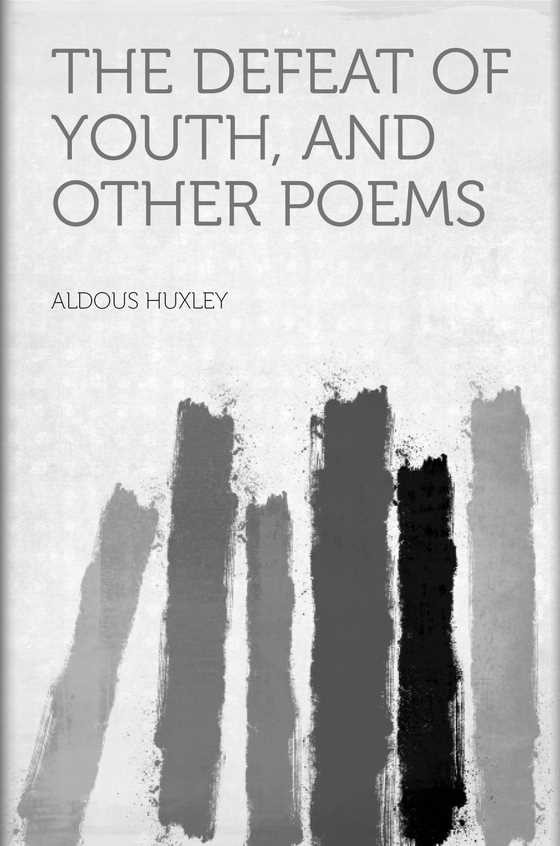 And so continues my chronological journey through Aldous’ bibliography.
And so continues my chronological journey through Aldous’ bibliography.
Although a fair few of the poems were as way beyond me as most were in The Burning Wheel, this did seem a little bit more accessible. I have no idea how much of that is me becoming used to the lexicon and style, or if Aldous has began to write a little more accessibly.
Anyway, another book of poetry that some of you may find enjoyable if you’re into early 1900’s poetry.
To be honest i’ll be glad to finally finish reading Aldous’ poetry and get onto things more enjoyable.

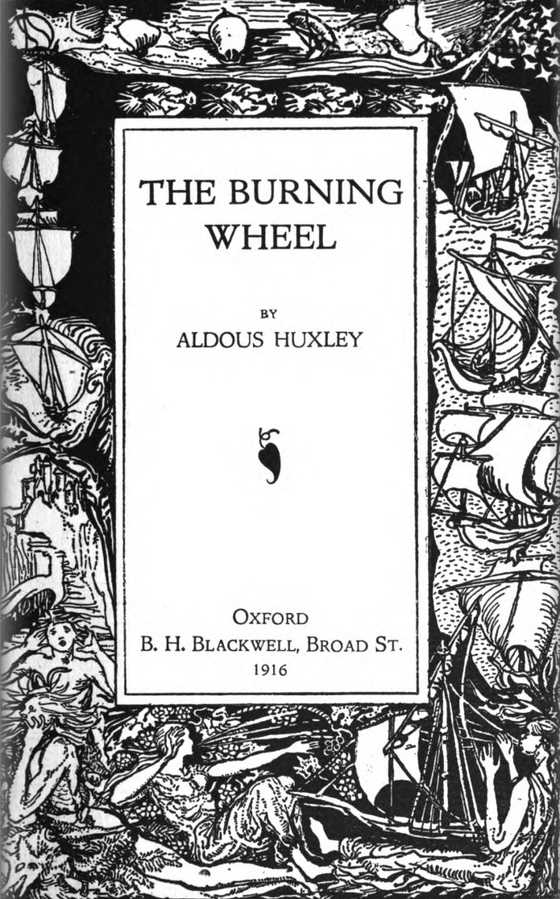 Aldous started out writing as a poet and this is his first ever book.
Aldous started out writing as a poet and this is his first ever book.
While there were a couple of poems in this that i could get my head around, for the most part it was all a bit too much above my 21st century head: mostly not my kind of poetry. I would class Aldous’ early poetry as very much ringing the death knell of the Victorian upper classes.
For those of us who have been enamoured by Aldous’ later writing, it’s quite interesting to come back to the very beginning and do Aldous chronologically.
Final thoughts: not my cup of tea but you might enjoy it if you’re into pretentious poetry with lots of words that you have to look up.

